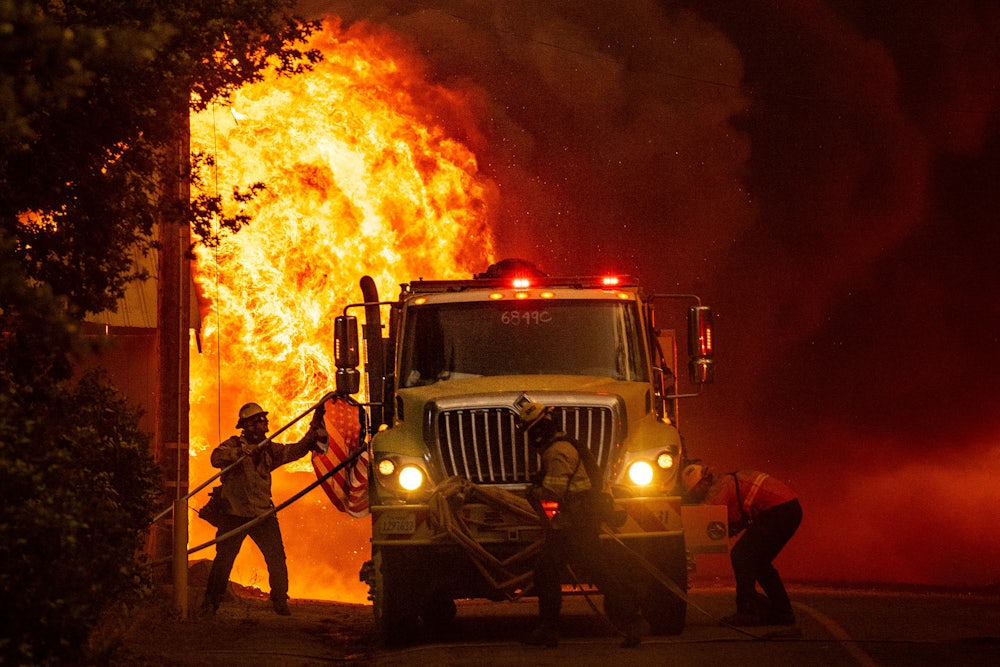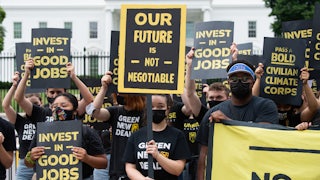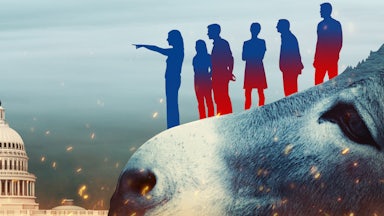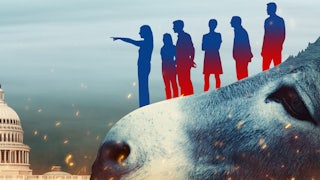Herodotus tells us that the massive Persian fleet sent to conquer Greece lost half its ships to a freak storm,” Gerard Baker advised in a column in The Wall Street Journal, the tutelary organ of the American business class, on August 9. The column appeared the same day the latest report of the Intergovernmental Panel on Climate Change (IPCC) was issued. Baker’s allusion to a weather disaster of the distant past was meant to ridicule the idea that there was anything unusual about the extreme weather events during the summer of 2021 in the United States and around the globe, while reassuring readers that the resolute pursuit of wealth in an economy based on fossil fuels could continue indefinitely. There is always the danger, however, that Wall Street Journal readers, being wide-ranging consumers of information, might happen across contrary views on this subject (even on the news pages of the Journal itself!), and thus need to be cautioned. Baker’s column, titled “Climate Change Has Consumed Journalistic Standards” lodges two complaints against contemporary journalists in relation to global warming, one general and one quite specific. The overall complaint is that journalists have, in his view, abandoned their historic objectivity and skepticism with regard to this phenomenon. His specific complaint is that they routinely refer to “climate change” rather than “weather,” and then use that term to explain extreme weather events (such as the probably highest temperature ever recorded on Earth, 130 degrees Fahrenheit in Death Valley last July). “We used to have weather,” he laments, positing that the shift in terminology began around 1999.
Baker is actually correct. Journalists rarely used to ascribe weather disasters to climate change, but now do so routinely. (By the way, Baker can thank former Republican pollster Frank Luntz for fabricating the term “climate change,” which Luntz surmised would sound less threatening than “global warming.”) Baker writes, “I’m confident the planet is warming and that evasive action would be smart,” but he opposes “drastic government-mandated responses.” This sentiment is in line with the basic position of the Journal’s editorial page, aptly summarized in an editorial published the same day, “A Climate of Catastrophe” (the word climate in this context describing an atmosphere of excessive panic in response to the IPCC report). “The IPCC report doesn’t justify putting the U.S. economy into the hands of government,” the editorial asserts. “A sensible climate policy will continue to monitor trends, while allowing a free economy to find solutions and build the wealth that will allow for adaptation and amelioration if the worst happens.” The worst, of course, would be for the planet to become uninhabitable.
A good example of journalism offensive to Gerard Baker would be the article by Ronald Brownstein posted on The Atlantic’s website in August called “The Unbearable Summer” (with an introductory summary in a magazine newsletter titled, “Climate Change Is Breaking the West”). Brownstein begins with a tweet from environmental scientist Robert Rohde, addressing the unprecedented heat wave that enveloped the Pacific Northwest in June. The temperature reached 108 degrees in Seattle, 116 degrees in Portland, and 121 degrees in British Columbia. Rohde noted that “the heatwave was statistically ‘impossible’”—not literally, since these astonishing temperature levels had actually been attained, but because these temperatures were outside the boundaries of “what we thought was possible.” More typically, Rohde explained to Brownstein, extreme events have some historical precedent, even if the precedent was far in the past—hence concepts like a “thousand-year flood.” But it was not common, he continued, “to find results that look impossible”—until recently. As a consequence of the severe heat and drought in the region, unprecedented and out-of-control wildfires were consuming large parts of Northern California and southern Oregon. “Is an event that has never happened before,” Brownstein asks, “really ‘unpredictable’ if such events are now happening virtually every year? Or is it more accurate to say that unpredictable and unprecedented events are now an eminently predictable, even reliable, element of the region’s future?”
The Wall Street Journal’s editorial commentary on the IPCC report states, “The biggest difference is the new report’s direct linkage of warming to catastrophic weather events such as hurricanes, severe heat waves or rain events, drought and so on. The [report’s] summary says this is based on ‘new methodology’ and evidence, which means computer models.” The editorial adds, “climate models are far from perfect.” Climate scientists Katharine Hayhoe and Friederike Otto have explained in The New York Times how the new climate methodology works in a process called “attribution.” Scientists create a model of what the world would be like if no man-made climate change had ever occurred. The effect of climate change is then measured by the difference between “how strong, how long, how big and how likely” the same event would have been in that simulated past world compared with the present. Using this methodology, Otto and a team of researchers calculated that global warming made the Pacific Northwest heat wave 3.6 degrees Fahrenheit hotter and 150 times more likely to occur.
In a report for ProPublica about the toll climate change and unfettered human exploitation are taking on the Colorado River, co-published in The New York Times, Abrahm Lustgarten wrote, “The uncomfortable truth is that difficult and unpopular decisions are now unavoidable. Prohibiting some water uses as unacceptable—long eschewed as antithetical to personal freedoms and the rules of capitalism—is now what’s needed most.” What does Lustgarten find unacceptable? Growing nonessential, water-guzzling grasses like alfalfa to feed cows in the United States and the Middle East for beef production. What would be acceptable? Americans going without meat one day a week to conserve an amount of water equal to the annual flow of the Colorado. What does Gerard Baker have to say to all that?






